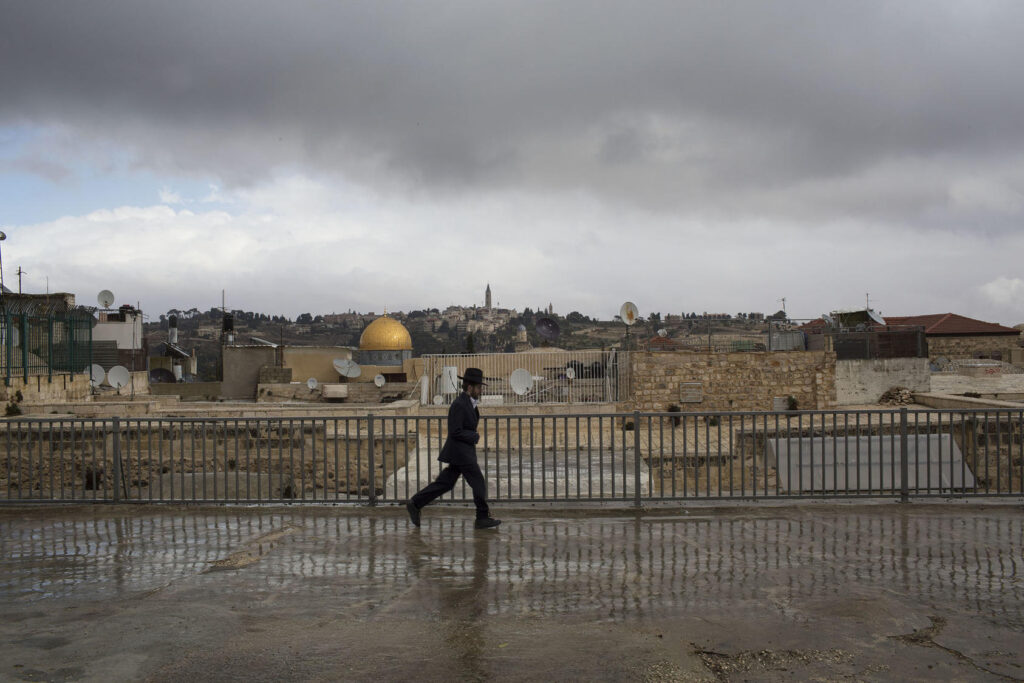Israel and Palestine: Can they tide over their differences and move towards a peaceful future?
Raamish Siddiqui- Blog – 20. May, 2021
The ongoing Israel-Palestine conflict is in its second week and surging still amid efforts from several countries and the United Nations for a ceasefire. While the violence between Israel-Palestine has caused immense destruction and losses over the last hundred years, the media has been hailing this conflict as one of the most serious Israel-Palestine confrontations of recent times. (CNN, May 18, 2021).
It is ironic how this ethnically diverse region, which should have served as a point of convergence for the human race and especially the believers of Abrahamic faith – Jews, Christians, and Muslims, has become a point of contention and one of the most fought-over pieces of land!
Historically, the Jewish community has long been in diaspora, and in the 1800s, they decided to reclaim their homeland. Post the Second World War, the United Nations voted to establish Israel alongside a Palestinian state. An independent Israeli state came into being in 1948, and the ensuing land politics started an unceasing saga of armed struggle, which has become a source of intense suffering and grief.
While the two sides have staunchly opposed each other on various occasions, the recent violence sparked because of protests to stop the eviction of some Palestinian families who have been residing in Sheikh Jarrah, a small neighbourhood in East Jerusalem. Fuelled by confrontations between Israeli police and Palestinians and years of hate campaigns, this event snowballed into a crisis as both sides took to bombardment and violence.
It is unfortunate how the Abrahamic religions have failed to recognize the commonality they shared and how they were the torchbearers of the message cascaded by the Prophet Abraham. By engaging in such violence, they are blatantly overlooking the traditions of the Prophets of God, who chose to establish peace as the ultimate goal and relinquished everything to make it happen. Religious traditions abound in recounting how the Prophets made efforts to ensure that a peaceful atmosphere prevailed. They did not resort to confrontation and destruction of the community. Instead, they chose to relinquish their right and even migrate to find peaceful opportunities.
Through their diaspora, the community of Prophet Moses set a lofty example for generations to follow. When the situation in their homeland became unfavourable, they moved away to distant lands to find opportunities to settle and flourish. Similarly, Prophet Muhammad not only migrated with his companions to sustain peace but he also created a moment of “open victory” (Quran, 48:1) when he unilaterally accepted all conditions laid down by the opposing party and signed the Treaty of Hudaibiyyah. The lives of the Prophets and messengers of God are replete with instances where they chose the peaceful course of action at the cost of relinquishing their rights. This is because peace in the divine scheme of things is the greatest good, which must prevail, whatever be the cost.

History and the present pandemic both impart a singular lesson – that human beings must come together and join hands for survival. Violence is no longer a choice for anyone – neither an individual nor a nation.
The Abrahamic faiths, therefore, are not just Ahl al-Kitab (People of the book), they are also Ahl al-Hijrah (People of Migration), whose ancestors migrated because they gave preference to peace over violence.
In the present times an initiative, which could have bolstered peace efforts in this region was the Abraham Accord. Signed on September 15, 2020 between UAE, Israel, and Bahrain, this Accord could have served as an anchor and a step in the right direction for positive engagement and collaboration between nations and their people. In signing such an Accord, the leaders had shown a ray of hope, which needed further nurturing. Unfortunately, this opportunity remained underutilized to augment the cause of peace in this region.
Instead of encountering each other in self-destructing violence, there should have been engagement to foster cooperation and partnership. Firing of rockets on one another will never give any solution to either side, it shall only continue a never-ending cycle of hatred and revenge, which is doomed to bring more death, more destruction and cause relentless havoc in the lives of people today and generations thereafter. We must not forget that as human beings, we cannot thrive in the wake of bloodshed. We inherently need peaceful opportunities and cooperation to allow potential to unfold and usher positive development.
The last year has already been a painful experience for everyone, all over the world. The pandemic has been indiscriminate in affecting the lives of people from all walks of life. If there is one thing it should have taught us, it was to show respect for life and one another. Because human beings are not just facing the pandemic, there is also a looming environmental crisis and many other factors that are already destroying the beautiful planet that we have inhabited. Against this backdrop, nothing can justify the perpetration of violence to cause any further loss of life. The suffering from the pandemic has not ended yet, and the only thing we should be doing is lending a helping hand, not killing one another!
The last century was not only a witness to the destruction caused by the First and the Second World Wars, but it also observed how nations like Japan and Germany emerged from the ashes of devastation to usher in a positive future. This was possible only due to their positive vision and a compelling resolve that to emerge from the depths of darkness, they may have to endure the unendurable, but it would still be a small price to pay.
History and the present pandemic both impart a singular lesson – that human beings must come together and join hands for survival. Violence is no longer a choice for anyone – neither an individual nor a nation. If we do not learn this lesson, we shall jeopardize the lives of both the present and the future generations. Let us pray for compassion and kindness to find a place on both sides so that they can overcome these differences. Let us not wither away in history as the thoughtless ones but go down as the conscientious lot who passed on the torch of peace to the succeeding generations.
